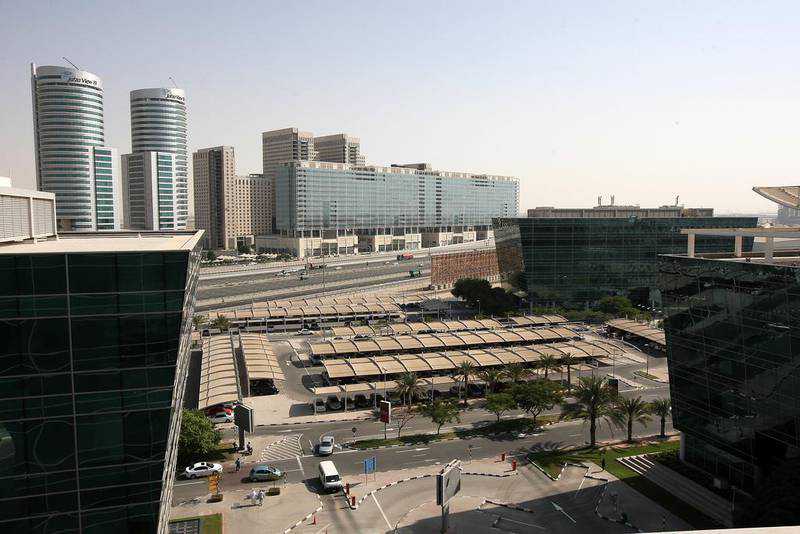Dubai's free zones on track to boost GDP contribution to $68bn by 2030

Collected Image
Free zones in Dubai are on track to boost their contribution to the emirate's gross domestic product to Dh250 billion ($68bn) by 2030, according to Sheikh Ahmed bin Saeed, chairman of the Dubai Free Zones Council.
The economic zones support the growth of existing industries and have created new specialised and dynamic sectors including green, circular and knowledge-based economies, in line with future economic opportunities, Sheikh Ahmed said during the council's meeting, state news agency Wam reported. Free zones enhance diversified economics and promote sustainability and growth, strengthening Dubai's appeal as a preferred investment destination, Sheikh Ahmed said.
Free zones – also known as free trade zones – are economic areas where business owners have 100 per cent ownership of their organisations and tend to have preferential tax schemes.
The UAE has been investing heavily in developing its infrastructure and implementing policy reforms to attract more entrepreneurs and businesses to the country as it seeks to grow its non-oil sector.
The UAE Cabinet recently approved new regulations for the entry and residence of foreigners, including amendments to the golden residency programme, green residency, tourist visas and other special visas.
The contribution of the UAE’s non-oil sector to the country's total economic output rose to 72.3 per cent in 2021, the Federal Competitiveness and Statistics Centre said earlier this month.
The Dubai 2040 Urban Master Plan presents a framework to "advance the free zones experience and take it to new heights", allowing free zones to play a more substantial role in Dubai’s socio-economic development, Sheikh Ahmed said.
The comprehensive roadmap also boosts Dubai’s rank in key global indices for competitiveness, innovation and ease of doing business.
During the meeting, the council explored the addition of 80 new services to the Invest in Dubai platform, including connectivity through a single portal that can be used by start-ups, investors and international companies for tax registration services, designing business plans and evaluating feasibility, among others.
The council also explored opportunities for companies to move between free zones. Members called for a framework that unifies the fee structure, the report said.
They also called for a comprehensive study in collaboration with Digital Dubai to assess the economic impact of free zones' contribution.
Last December, Sheikh Ahmed, in his capacity as chairman of the Dubai Integrated Economic Zones Authority, approved the organisation's new structure, aimed at enhancing free zone integration in the emirate and providing comprehensive solutions to investors and free zone companies.
The economic zones support the growth of existing industries and have created new specialised and dynamic sectors including green, circular and knowledge-based economies, in line with future economic opportunities, Sheikh Ahmed said during the council's meeting, state news agency Wam reported. Free zones enhance diversified economics and promote sustainability and growth, strengthening Dubai's appeal as a preferred investment destination, Sheikh Ahmed said.
Free zones – also known as free trade zones – are economic areas where business owners have 100 per cent ownership of their organisations and tend to have preferential tax schemes.
The UAE has been investing heavily in developing its infrastructure and implementing policy reforms to attract more entrepreneurs and businesses to the country as it seeks to grow its non-oil sector.
The UAE Cabinet recently approved new regulations for the entry and residence of foreigners, including amendments to the golden residency programme, green residency, tourist visas and other special visas.
The contribution of the UAE’s non-oil sector to the country's total economic output rose to 72.3 per cent in 2021, the Federal Competitiveness and Statistics Centre said earlier this month.
The Dubai 2040 Urban Master Plan presents a framework to "advance the free zones experience and take it to new heights", allowing free zones to play a more substantial role in Dubai’s socio-economic development, Sheikh Ahmed said.
The comprehensive roadmap also boosts Dubai’s rank in key global indices for competitiveness, innovation and ease of doing business.
During the meeting, the council explored the addition of 80 new services to the Invest in Dubai platform, including connectivity through a single portal that can be used by start-ups, investors and international companies for tax registration services, designing business plans and evaluating feasibility, among others.
The council also explored opportunities for companies to move between free zones. Members called for a framework that unifies the fee structure, the report said.
They also called for a comprehensive study in collaboration with Digital Dubai to assess the economic impact of free zones' contribution.
Last December, Sheikh Ahmed, in his capacity as chairman of the Dubai Integrated Economic Zones Authority, approved the organisation's new structure, aimed at enhancing free zone integration in the emirate and providing comprehensive solutions to investors and free zone companies.
Source: https://www.thenationalnews.com
Tags :
Previous Story
- Dewa IPO: company increases number of shares on...
- DFM and Dubai Mercantile Exchange partner to develop...
- Leaving a legacy was always in the Expo...
- Dubai's Paramount Hotel Midtown is now open in...
- Experience boutique luxury on Dubai’s World Islands with...
- Dubai adds 98 new economic activities in 2021...
- Free trade deal 'will help UK remain among...
- Sheikh Mohammed bin Rashid approves $49.3bn Dubai budget...